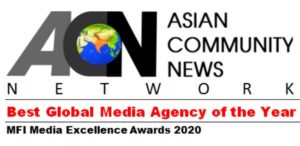JETRO Survey finds New Customs Rules adversely impacted Japan-India trade, delayed shipments, confused Japanese companies
Many Japanese companies were forced to give up the FTA tax rate advantage and they paid normal customs tariffs. JETRO plans to report the survey results to the Indian Government.
NEW DELHI: A recent survey conducted by the Japan External Trade Organization (JETRO) to establish the impact of New Customs Rules of Origin (CAROTAR 2020) on Japanese companies revealed that it adversely impacted Japan-India bilateral trade, delayed shipments as cargo got stuck at the ports, and caused confusion in Japanese companies.
As per the survey findings, 56% of Japanese companies (Total 462 responses), were affected as they faced hardship at large ports and airports such as Nhava Sheva (Mumbai), Chennai Port, and Delhi Airport.
Implemented on September 21, 2020, the Customs (Administration of Rules of Origin under Trade Agreements) Rules, required the companies importing goods to India to produce a certificate of origin while availing preferential customs duty provisioned in the free trade agreements (FTAs).
In order ascertain the impact of new Customs Rules on the Japanese companies, JETRO circulated an urgent questionnaire on November 19-27 in collaboration with the Embassy of Japan in India and the organizations of Japanese business and industry associations including the Japan Chamber of Commerce and Industry in India (JCCII) in various parts of India.
“Since the enforcement of CAROTAR 2020 on September 21, there has been a lot of confusion at customs sites around the world. JETRO received 137 inquiries in just over two months from September 21st to November 30th. The breakdown is 50 inquiries from India, 81 from Japan, and 6 from third countries,” stated the JETRO report.
Resultantly, a score of Japanese companies was forced to give up FTA tax rate advantage and they paid normal customs tariff.
As many as 63% of the respondents chose the “Submit information using Form I”, and 29% chose the “Give up the FTA tax rate and pay normal tariffs for customs clearance” option.
“Considering the delivery date and the impact on the company’s production activities, it turned out that there are a certain number of companies that have given up applying the FTA tax rate and are accepting additional costs in order to pass cargo quickly,” the report revealed.
According to this rule, customs clearance can be carried out by paying a deposit of the difference between the FTA tax rate and the normal customs duty. In fact, 11% of companies responded that way. However, it is unclear when the deposit will be returned. In addition, there is a heavy burden on companies that they have to continue negotiations for return until the return is made.
Related article: Over 600 Japanese Cos. show up with issues related to new Customs Rules of Origin under CAROTAR 2020
In addition, when asked what kind of problems occurred due to the enforcement of CAROTAR2020, 120 companies, which is 46% of the total, cited that “the ratio of information provision instructions being implemented is high” at the time of import declaration. Of these, 33% of companies answered that the percentage of information provision instructions given was “more than 90%” based on the number of import declarations.
The survey found that due to these stricter examinations, the time required for customs clearance has increased by an average of 8-9 days compared to before the enforcement of this rule.
“From the results of this questionnaire, it was found that the Japan-India Economic Partnership Agreement (Japan-India Economic Partnership) had the largest number of problems with 237 cases, which had a great impact on trade between Japan and India. JETRO plans to report the results of this questionnaire to the Government of India in collaboration with the Embassy of Japan in India and the Japan Chamber of Commerce in India, and continue to request the Government of India to operate smoothly,” stated the survey report.
More than two months have passed since the enforcement, and the situation has improved?
More than two months have passed since the enforcement on September 21, and it can be seen that both companies and customs have gradually become accustomed to complying with the new rules.
Of the 145 companies that were “required to submit information as a customs clearance requirement,” 54% chose “submitting only the minimum items and being able to clear customs with preferential tariffs.”
Related article: Japan’s METI steps in, Flags concerns of Japanese Cos facing customs issues under CAROTAR 2020
In addition, 30% of companies answered that they were able to provide detailed information (price, etc.) in addition to the minimum items upon request and clear customs with preferential tariffs. It has also become clear that even if customs inquires of an importing company because of CAROTAR2020, the FTA tax rate will be applied if the required information is provided using Form I or the like.
So far, the Japanese government has been in constant contact and exchange of opinions with CBIC, the economic minister of the Japanese embassy in India has issued a letter to each customs director, and the director of the Southwest Asia Office of the Ministry of Economy, Trade, and Industry has addressed the economic minister of the Indian embassy in Tokyo. We have been making various efforts to inform the Indian side of the current situation of Japanese companies, such as issuing letters and requesting improvements.
According to the Embassy of Japan in India, in mid-November, CBIC canceled the 100% inspection at the time of customs clearance and verified the exporting country when the importer could not provide cost information and confidential information (Verification, so-called “verification”). Unnecessary question inspections, cancellation of repeated questions, and compliance with various deadlines were instructed by each customs office. The number of consultations with JETRO has calmed down from a period of time, and it can be seen that the operation is gradually becoming smoother.
Related article: Suspend new Customs Rules of Origin CAROTAR 2020, Review terms of EPA, FTA



